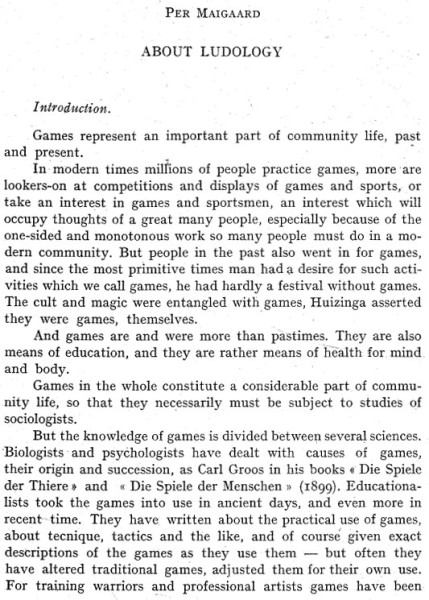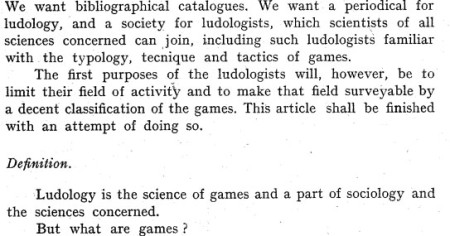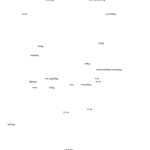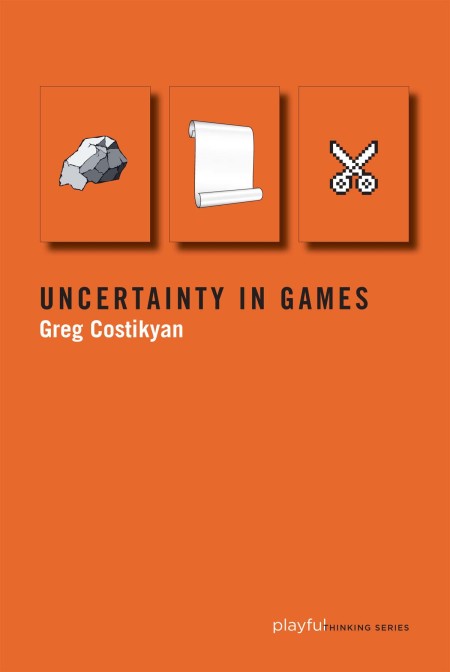For your theoretical pleasure, here is the Game Studies 13/2 special issue on Game History.
*
The Platform and the Player: exploring the (hi)stories of Elite
by Alison Gazzard
This article explores the landscape of British computer games through a case study of Elite. Utilising archival methodologies inherent in media archaeology, combined with approaches from platform studies, a history of Elite is approached through both its original development and the players’ responses to the game at the time. [more]
A Pedestal, A Table, A Love Letter: Archaeologies of Gender in Videogame History
by Laine Nooney
This article is a methodological exploration of gender as it relates to the writing of game history. This contribution presents three case studies, focused on the biography of Sierra On-Line cofounder and lead designer Roberta Williams, to analyze this historical mechanisms through which women are located — and left out of — game history. [more]
by David Parisi
This archaeological analysis of gamic electroshock charts changes in the way that electricity has been employed as a game mechanic, opening with an examination of the 18th century ‘electric kiss’ game, moving to a treatment of early 20th century arcade electricity, and concluding with a discussion of ludic electric shock in recent game art. [more]
The Foundation of Geemu: A Brief History of Early Japanese video games
by Martin Picard
The paper presents a short history of the beginning of the Japanese video game industry (from 1973 to 1983). It argues that specific local developments of a video game industry and market took place in Japan, which has never been addressed in Western histories of games, mainly interested in Japanese video games through a global perspective. [more]
Say it with a Computer Game: Hobby Computer Culture and the Non-entertainment Uses of Homebrew Games in the 1980s Czechoslovakia
by Jaroslav Švelch
Based on historical research into computer games in the 1980s Czechoslovakia, this article traces the uses of the medium in the context of an amateur community. It argues that the entertainment function of local homebrew games was often overshadowed by their potential as a means of communication among the community of users. [more]



![delitionist_logo[1]](http://www.jesperjuul.net/ludologist/wp-content/uploads/2013/06/delitionist_logo1.png)

![deletionist-waxy-20130618-212909[1]](http://www.jesperjuul.net/ludologist/wp-content/uploads/2013/06/deletionist-waxy-20130618-2129091-150x150.png)


 In life, uncertainty surrounds us. Things that we thought were good for us turn out to be bad for us (and vice versa); people we thought we knew well behave in mysterious ways; the stock market takes a nosedive. Thanks to an inexplicable optimism, most of the time we are fairly cheerful about it all. But we do devote much effort to managing and ameliorating uncertainty. Is it any wonder, then, asks Greg Costikyan, that we have taken this aspect of our lives and transformed it culturally, making a series of elaborate constructs that subject us to uncertainty but in a fictive and nonthreatening way? That is: we create games.
In life, uncertainty surrounds us. Things that we thought were good for us turn out to be bad for us (and vice versa); people we thought we knew well behave in mysterious ways; the stock market takes a nosedive. Thanks to an inexplicable optimism, most of the time we are fairly cheerful about it all. But we do devote much effort to managing and ameliorating uncertainty. Is it any wonder, then, asks Greg Costikyan, that we have taken this aspect of our lives and transformed it culturally, making a series of elaborate constructs that subject us to uncertainty but in a fictive and nonthreatening way? That is: we create games.